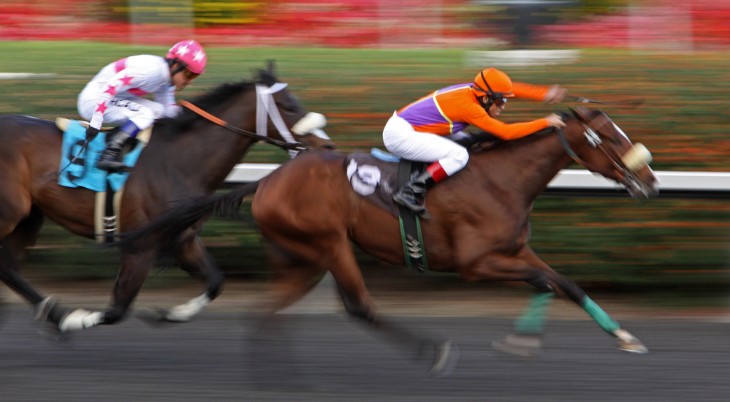Horse racing, a traditional sport with deep historical roots, has significantly evolved in recent years due to the emergence of betting exchanges. These online platforms have changed how bets are made and matched, altering the established norms of horse race betting. This article examines the comprehensive impact of betting exchanges on horse racing, addressing their development, operation, and their extensive influence on the industry.
The Evolution of Betting Exchanges in Horse Racing
The emergence of betting exchanges marks a pivotal moment in the history of horse racing. Gone are the days when punters would engage with traditional bookmakers to place bets on races. The inception of betting exchanges has shifted the power dynamic, allowing individuals to directly interact with one another to determine odds and wagers.
At the heart of this evolution lies the notion of peer-to-peer wagering, where punters engage in a virtual marketplace, trading bets in real-time. This departure from the traditional bookmaking model has opened up a realm of possibilities for both seasoned bettors and newcomers alike. The digitization of the betting process has brought about increased accessibility and convenience, enabling punters to engage with horse racing from the comfort of their own homes.
Breaking Tradition: Traditional Bookmakers vs. Betting Exchanges
The clash between tradition and innovation is palpable in the horse racing world as the rise of betting exchanges challenges the long-standing reign of traditional bookmakers. For centuries, bookmakers have held a prominent role in facilitating bets and setting odds. However, the entry of betting exchanges has shaken this foundation by decentralizing the betting process.
Traditional bookmakers function as intermediaries, setting odds and taking bets from punters. In contrast, betting exchanges introduce a democratic element by empowering individuals to assume both roles – backing and laying bets. This shift eliminates the middleman, offering punters a level of control and involvement that was previously unimaginable.
As punters navigate this landscape of change, the allure of greater control and potentially better odds draws them towards betting exchanges. The dynamic nature of exchanges enables punters to dictate their own odds and negotiate with fellow bettors. This newfound agency has sparked a sense of community among punters, transforming the act of betting into a collaborative and interactive experience.

The Mechanics of Betting Exchanges: Peer-to-Peer Wagering
The mechanics underpinning betting exchanges introduce a fascinating departure from traditional betting norms. Picture a bustling digital marketplace where punters come together to strike deals, just like traders on a stock exchange floor. In this virtual arena, bets are not simply placed; they are negotiated, backed, and laid between individuals with conflicting opinions on the race's outcome.
The heart of this system lies in the concept of backing and laying bets. When you back a bet, you're essentially predicting that a particular horse will win, much like the traditional approach. However, the real magic happens when you decide to lay a bet. Here, you're taking on the role of the bookmaker, effectively betting against the horse's victory. This duality allows punters to assume positions on both sides of the betting equation, forging a dynamic landscape of odds and probabilities.
Betting exchanges facilitate this complex dance by providing a platform where bets are matched in real-time. As you place a bet, the exchange algorithm tirelessly seeks out opposing wagers, aiming to match your stake with someone willing to lay the opposing position. It's a symphony of bids and offers, where punters become the conductors, orchestrating a collective narrative of betting odds.
Enhanced Transparency and Fairness: Impact on Horse Racing Integrity
In the traditional bookmaking setup, the opaqueness surrounding odds-setting and betting dynamics has long raised questions about fairness and integrity. Betting exchanges, however, illuminate the betting landscape with a beacon of transparency. The process of odds creation becomes a collaborative venture, with punters collectively determining the prices through their backing and laying activities.
This transparency extends to the in-play betting realm, where real-time fluctuations mirror the ebb and flow of the race itself. Punters can react instantly to unfolding events, adjusting their positions as the horses thunder towards the finish line. Such visibility and responsiveness not only enhance the punting experience but also contribute to safeguarding the sport's integrity.
The exchange model introduces a compelling layer of accountability. The data generated by punters' interactions becomes a goldmine of insights, revealing market sentiment and trends that were previously concealed. This wealth of information aids regulatory bodies in identifying unusual patterns that could signify foul play, ensuring that horse racing remains a level playing field.
Empowering the Punter: Access to In-Play Betting and New Wagering Options
In the grand tapestry of horse racing, the arrival of betting exchanges has woven a vibrant thread of interactivity and immediacy. The concept of in-play betting, once confined to stadium bookmakers, has now exploded onto the digital scene, transforming the way punters engage with races as they unfold.
No longer are bets locked in before the race begins; punters can now seize the reins of their wagers mid-race. This live betting experience opens a realm of possibilities, enabling punters to respond swiftly to changing circumstances – a fall, an unexpected surge, or a late charge to victory. With the click of a button, bets are placed or adjusted in harmony with the horses' strides, transforming the spectator experience into a thrilling dance of prediction and reaction.
But the revolution doesn't halt at in-play betting. Betting exchanges have unfurled an array of new wagering options that defy convention. Accumulators, for instance, are no longer confined to the realm of traditional bookmakers. Punters can craft their own multi-leg bets, bundling together selections from various races, harnessing their intuition and strategic prowess to form personalised betting combinations.
The Rise of Betting Exchanges: Influence on Horse Racing Economics
Beyond the realm of the turf, the reverberations of betting exchanges have rippled through the very fabric of horse racing economics. Traditional bookmakers operated as gatekeepers, their profit margins sculpted by the difference between odds offered and true probabilities. Betting exchanges, however, introduce a different equation altogether.
In this novel landscape, the exchange extracts its revenue by applying a commission on winning bets, rather than through setting odds. This commission-driven model transforms the dynamics of risk and reward, aligning the interests of the exchange with those of the punters. As a result, punters can often find more attractive odds on exchanges compared to traditional bookmakers, a proposition that entices and elevates the entire betting experience.
Moreover, the decentralised nature of betting exchanges distributes economic power across the community of punters. Rather than contributing solely to the profits of established bookmaking entities, punters themselves benefit from the collective exchange activity. This shift in wealth distribution bolsters the democratization of betting, placing the reins of influence firmly within the grasp of those who engage in the art of predicting horse racing outcomes.
Data and Analytics Revolution: How Betting Exchanges Shape Betting Strategies
In the digital age, data is king, and the horse racing arena is no exception. The advent of betting exchanges has ushered in a new era of data-driven decision-making, transforming how punters strategize and place their bets. The exchange platforms serve as a treasure trove of information, offering insights into market trends, odds fluctuations, and even the collective sentiment of fellow bettors.
Punters armed with this wealth of data can refine their strategies with surgical precision. Historical performance, jockey-trainer partnerships, track conditions – every variable becomes a data point to be analyzed and incorporated into betting decisions. As the sport gallops forward, punters ride alongside equipped with a data-driven compass, navigating the labyrinth of horse racing odds and outcomes.
But it's not just punters who are embracing this data revolution. Analysts, statisticians, and enthusiasts have joined the fray, dissecting the digital footprints left by exchange interactions. This analytical renaissance has birthed a new breed of experts, armed with predictive models and statistical prowess. The fusion of horse racing tradition with the power of data has given rise to a new narrative, one where calculated predictions intertwine with the exhilaration of the race itself.

Challenges and Controversies: Regulating Betting Exchanges in Horse Racing
As with any transformative force, the rise of betting exchanges has not been without its share of challenges and controversies. The disruption of traditional bookmaking models has prompted regulatory bodies to reevaluate their frameworks in order to maintain a fair and transparent betting landscape.
One pressing concern has been the potential for market manipulation or unethical conduct within the peer-to-peer exchange ecosystem. The decentralised nature of exchanges can inadvertently create opportunities for collusion, artificial price manipulation, or the spread of insider information. Regulatory bodies must tread cautiously, ensuring that adequate measures are in place to uphold the integrity of horse racing while allowing the innovation of betting exchanges to flourish.
Moreover, the seamless global reach of online betting exchanges has raised jurisdictional dilemmas. The fluidity of digital transactions can transcend borders, presenting a challenge for regulators seeking to enforce local betting laws. Striking a balance between embracing innovation and safeguarding the interests of punters and the sport itself remains a delicate act on the regulatory tightrope.
The intertwining of tradition with innovation is a path illuminated by the rise of betting exchanges. As the sport of kings hurtles towards an ever-evolving future, the embrace of change ensures that the pulse of horse racing remains steady, beating in rhythm with the aspirations of punters and the heartbeat of time itself.
Conclusion
In conclusion, the narrative of betting exchanges altering horse racing is one of evolution, flexibility, and a zeal for advancement. We've charted a course through history, operations, ethics, economics, and goals. This story is ongoing, propelled by innovative drive and the enduring attraction of the racetrack.








